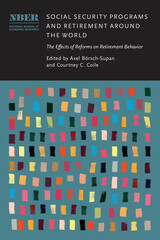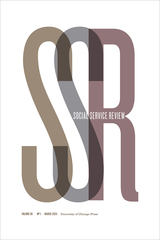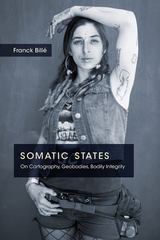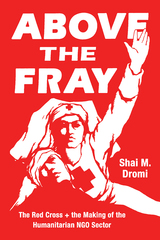
Drawing on archival research, Dromi traces the genesis of the Red Cross to a Calvinist movement working in mid-nineteenth-century Geneva. He shows how global humanitarian policies emerged from the Red Cross founding members’ faith that an international volunteer program not beholden to the state was the only ethical way to provide relief to victims of armed conflict. By illustrating how Calvinism shaped the humanitarian field, Dromi argues for the key role belief systems play in establishing social fields and institutions. Ultimately, Dromi shows the immeasurable social good that NGOs have achieved, but also points to their limitations and suggests that alternative models of humanitarian relief need to be considered.

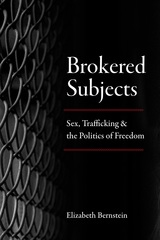
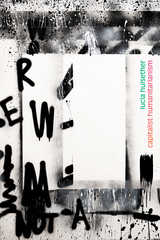

Despite altruistic goals, humanitarianism often propagates foreign, and sometimes unjust, power structures where it is employed. Tracing the visual rhetoric of French colonial humanitarianism, Peter J. Bloom’s unexpected analysis reveals how the project of remaking the colonies in the image of France was integral to its national identity.
French Colonial Documentary investigates how the promise of universal citizenship rights in France was projected onto the colonies as a form of evolutionary interventionism. Bloom focuses on the promotion of French education efforts, hygienic reform, and new agricultural techniques in the colonies as a means of renegotiating the social contract between citizens and the state on an international scale. Bloom’s insightful readings disclose the pervasiveness of colonial iconography, including the relationship between “natural man” and colonial subjectivity; representations of the Senegalese Sharpshooters as obedient, brave, and sexualized colonial subjects; and the appeal of exotic adventure narratives in the trans-Saharan film genre.
Examining the interconnection between French documentary realism and the colonial enterprise, Bloom demonstrates how the colonial archive is crucial to contemporary debates about multiculturalism in France.
Peter J. Bloom is associate professor of film and media studies at the University of California-Santa Barbara.y debates about multiculturalism in France.
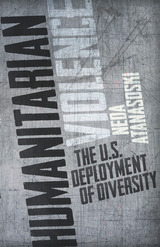
When is a war not a war? When it is undertaken in the name of democracy, against the forces of racism, sexism, and religious and political persecution? This is the new world of warfare that Neda Atanasoski observes in Humanitarian Violence, different in name from the old imperialism but not so different in kind. In particular, she considers U.S. militarism—humanitarian militarism—during the Vietnam War, the Soviet-Afghan War, and the 1990s wars of secession in the former Yugoslavia.
What this book brings to light—through novels, travel narratives, photojournalism, films, news media, and political rhetoric—is in fact a system of postsocialist imperialism based on humanitarian ethics. In the fiction of the United States as a multicultural haven, which morally underwrites the nation’s equally brutal waging of war and making of peace, parts of the world are subject to the violence of U.S. power because they are portrayed to be homogeneous and racially, religiously, and sexually intolerant—and thus permanently in need of reform. The entangled notions of humanity and atrocity that follow from such mediations of war and crisis have refigured conceptions of racial and religious freedom in the post–Cold War era. The resulting cultural narratives, Atanasoski suggests, tend to racialize ideological differences—whereas previous forms of imperialism racialized bodies. In place of the European racial imperialism, U.S. settler colonialism, and pre–civil rights racial constructions that associated racial difference with a devaluing of nonwhite bodies, Humanitarian Violence identifies an emerging discourse of race that focuses on ideological and cultural differences and makes postsocialist and Islamic nations the potential targets of U.S. disciplining violence.

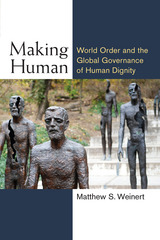
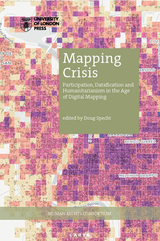
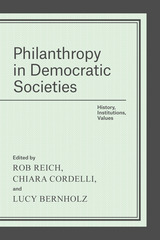
The contributors balance empirical and normative approaches, exploring both the roles philanthropy has actually played in societies and the roles it should play. They ask a multitude of questions: When is philanthropy good or bad for democracy? How does, and should, philanthropic power interact with expectations of equal citizenship and democratic political voice? What makes the exercise of philanthropic power legitimate? What forms of private activity in the public interest should democracy promote, and what forms should it resist? Examining these and many other topics, the contributors offer a vital assessment of philanthropy at a time when its power to affect public outcomes has never been greater.
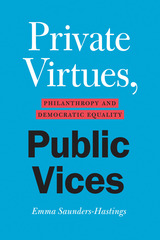
Philanthropy plays a huge role in supporting the provision of many public goods in contemporary societies. As a result, decisions that affect public outcomes and people’s diverse interests are often dependent on the preferences and judgments of the rich. Political theorist Emma Saunders-Hastings argues that philanthropy is a deeply political activity. She asks readers to look at how the power wielded by philanthropy impacts democracy and deepens political inequality by enabling the wealthy to exercise outsize influence in public life and by putting in place paternalistic relationships between donors and their intended beneficiaries. If philanthropy is to be made compatible with a democratic society of equals, it must be judged not simply on the benefits it brings but on its wider political consequences. Timely and thought-provoking, Private Virtues, Public Vices will challenge readers’ thoughts on what philanthropy is and how it truly affects us.
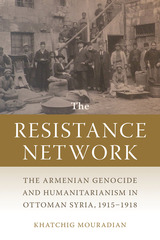
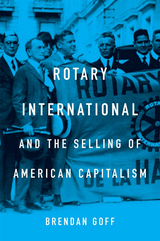
A new history of Rotary International shows how the organization reinforced capitalist values and cultural practices at home and tried to remake the world in the idealized image of Main Street America.
Rotary International was born in Chicago in 1905. By the time World War II was over, the organization had made good on its promise to “girdle the globe.” Rotary International and the Selling of American Capitalism explores the meteoric rise of a local service club that brought missionary zeal to the spread of American-style economics and civic ideals.
Brendan Goff traces Rotary’s ideological roots to the business progressivism and cultural internationalism of the United States in the early twentieth century. The key idea was that community service was intrinsic to a capitalist way of life. The tone of “service above self” was often religious, but, as Rotary looked abroad, it embraced Woodrow Wilson’s secular message of collective security and international cooperation: civic internationalism was the businessman’s version of the Christian imperial civilizing mission, performed outside the state apparatus. The target of this mission was both domestic and global. The Rotarian, the organization’s publication, encouraged Americans to see the world as friendly to Main Street values, and Rotary worked with US corporations to export those values. Case studies of Rotary activities in Tokyo and Havana show the group paving the way for encroachments of US power—economic, political, and cultural—during the interwar years.
Rotary’s evangelism on behalf of market-friendly philanthropy and volunteerism reflected a genuine belief in peacemaking through the world’s “parliament of businessmen.” But, as Goff makes clear, Rotary also reinforced American power and interests, demonstrating the tension at the core of US-led internationalism.
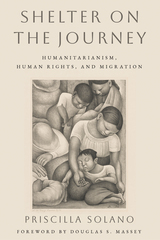
Solano, who volunteered at shelters in Mexico, chronicles the activity in three of the nearly 100 shelters along a unique humanitarian trail that many Central Americans take to reach the United States. She outlines the constraints faced by these sites and their potential to create social transformation and considers how and why migration security is currently framed and managed as both a criminal and humanitarian issue.
Shelter on the Journey explores the politics of the shelters, their social world, and the dynamics of charity and solidarity, as well as the need for humanitarian assistance and advocacy for dignified and free transit migration.
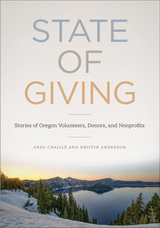
much-needed manifesto for greater civic engagement. Chaillé and Anderson highlight the crucial
role that nonprofits play as pillars of Oregon’s civic structure through their engaging profiles of
the charismatic civic leaders, grassroots organizations, donors, and volunteers who are working
to combat some of Oregon’s most enduring problems, including:
• Education Inequity
• Environmental Conservation
• Social Inequity and Discrimination
• Hunger and Homelessness
• The Urban/Rural Divide
• Arts, Culture, and Heritage Funding
Traversing the state from a remote Great Basin field station to an intercultural center in north
Portland, State of Giving shows the many faces of public engagement in people like education
activist Ron Herndon, volunteer historians Gwen Carr and Willie Richardson, and Wallowa
County philanthropist and rancher Doug McDaniel. Their stories reveal that there are ways
in which we all—regardless of wealth, location, age, or background—can give back to our
communities.
In addition to introducing Oregon’s key areas of need and demonstrating diverse pathways
into civic engagement, the book provides extensive resources for prospective volunteers and
donors. Rousing, accessible, and enlivened by photographs of its people and places, State of Giving
is an essential reference for anyone interested in building a better Oregon, starting today.
READERS
Browse our collection.
PUBLISHERS
See BiblioVault's publisher services.
STUDENT SERVICES
Files for college accessibility offices.
UChicago Accessibility Resources
home | accessibility | search | about | contact us
BiblioVault ® 2001 - 2025
The University of Chicago Press




